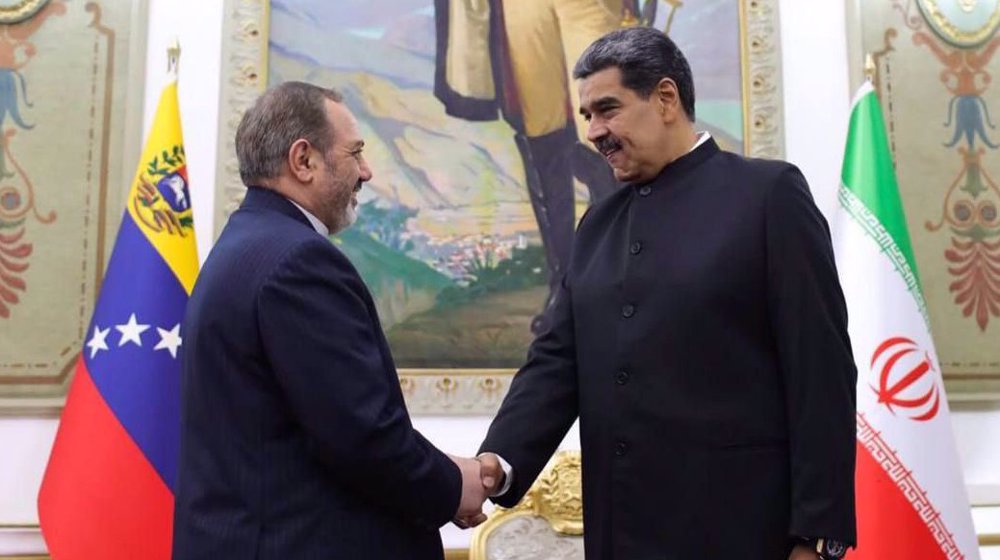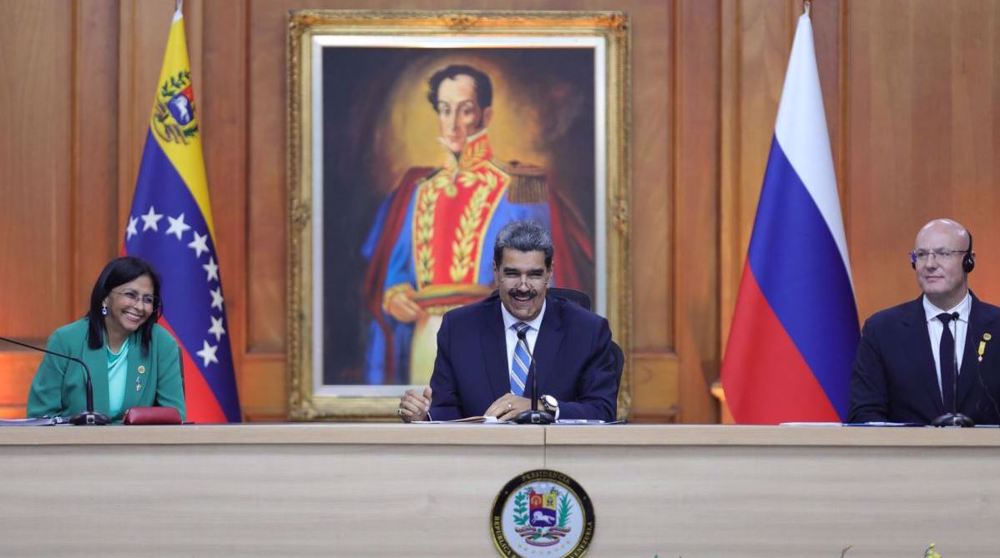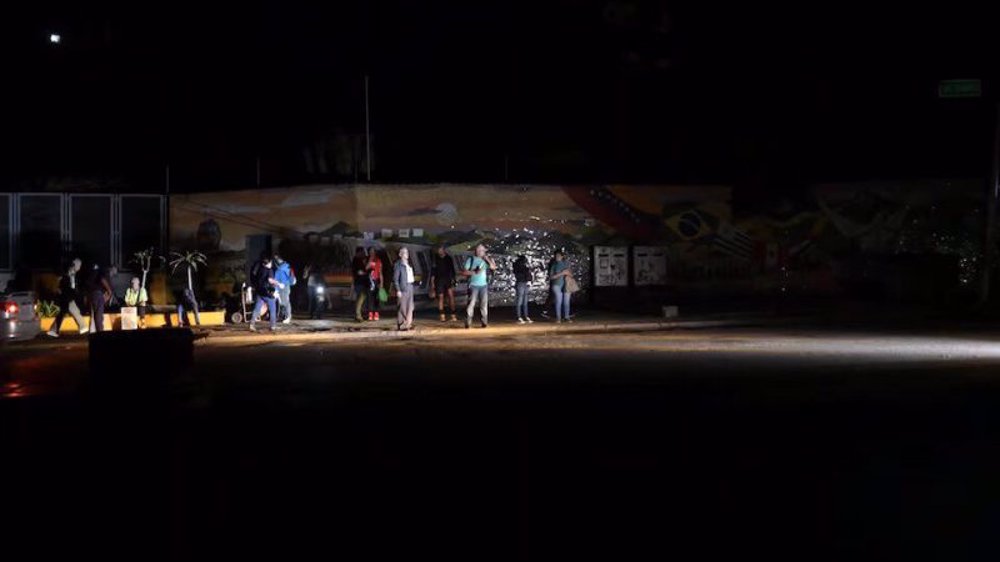Venezuela, Cuba leaders meet in show of unity against 'enemy'
Vice President of Venezuela's ruling party Diosdado Cabello has met with Cuba’s Communist Party leader Raul Castro in a show of unity against the United States’ constant pressure on the governments of Caracas and Havana.
Cabello, a key figure in the government Venezuelan President Nicolas Maduro, arrived in the capital Havana on Friday, where he said the two sides “need to be united because we have a very powerful enemy in common.”
According to Cuban media, Castro "reiterated Cuba's firm support to the Venezuelan people and government” during the meeting.
Cuban Foreign Minister Bruno Rodriguez said he also held a "fraternal and useful meeting" with Cabello in which he expressed his country's "solidarity.”
He said in a Twitter message that they had touched on matters of international interest as well.
The meeting came as the US continues to undermine Maduro in a bid to replace him with opposition figure Juan Guaido.

Guaido, who headed the defunct National Assembly, pushed the country into a political crisis in January, when he suddenly declared himself as “interim president” of Venezuela, disputing the outcome of last year’s election, in which President Maduro emerged victorious.
US President Donald Trump as well as some of his Latin American and European allies immediately recognized Guaido and pledged to help him oust Maduro, even if it requires military action.
Venezuela partially opens Colombia border
In another related development, President Maduro said he had ordered a partial opening of the country's border with Colombia on Friday.
He said in a Twitter message that border crossings in the western state of Tachira would be open as of Saturday.
"We are a people of peace who firmly defend our independence," he wrote.
His government closed the border back in February as Guaido was trying to bring into the country a convoy of what he claimed to be humanitarian aid supplied by Washington.
Maduro, however, said the alleged aide was a cover by the Trump administration to proceed with its regime change plans with military intervention.
The Western-backed opposition blames Maduro for an ailing economy, hyperinflation, power cuts, and shortages of basic items.
Maduro, however, says his nation is victim of an "economic war" led by the opposition with the help of Washington, which has levied several rounds of sanctions against the oil-rich country.
He has repeatedly called on Guaido to “abandon his coup-mongering strategy,” calling on him to “think carefully about what you are doing.”
Guaido rejects third round of talks in Norway
Maduro has also agreed to engage in talks with the opposition in an effort to “build a peaceful agenda.”
Two rounds of negotiations between delegates from Maduro’s government and the opposition were held in Noway’s capital, Oslo last month.
Guaido, however, refused to continue talks, “because anything that does not move us toward (Maduro's resignation) is useless."
He made the remarks during a rally in the central city of Valencia on Friday, saying that third round of talks are "not on the table today.”
“A new meeting isn't planned at the moment, we can get what we've proposed on the agenda," Guaidó said.
The talks, however, collapsed without a deal as opposition delegates repeated calls for Maduro to step down and allow a transitional government to organize a new presidential vote.
Maduro had earlier proposed that elections be held for the country’s National Assembly in order to have “a peaceful solution, electoral, democratic, constitutional.”
The opposition won a majority in the National Assembly in 2015. But it was declared in contempt of the Supreme Court in 2017 for swearing in three legislators whose elections had been ruled invalid by the court.
The body, however, has decided to continue operating until the end of 2020.
Diplomat discourages recourse to pressure, intimidation, confrontation against Iran
UN: 2024 deadliest year for aid workers amid genocide in Gaza
Gaza health official warns of hospital shutdowns within 48 hours
Israel kills 5 more paramedics in southern Lebanon: Health ministry
Iran to launch ‘new, advanced’ centrifuges in response to IAEA resolution: AEOI
Yemen fires hypersonic missile at Israeli airbase
VIDEO | New Delhi chokes under toxic smog as air quality remains at hazardous levels
VIDEO | Press TV's news headlines














 This makes it easy to access the Press TV website
This makes it easy to access the Press TV website